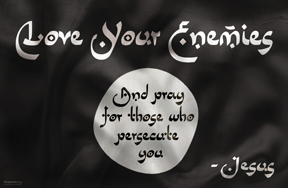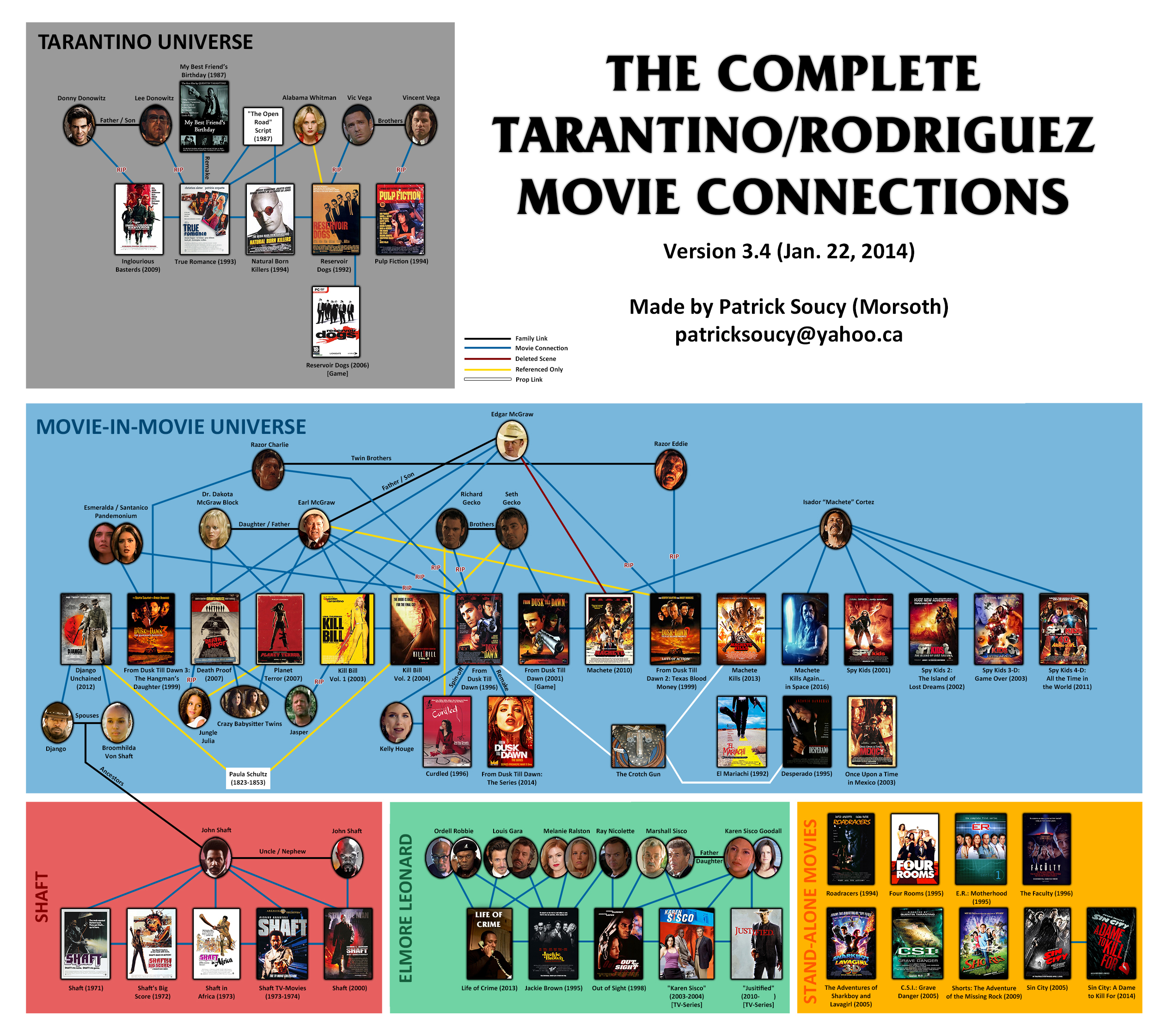From one man he made all the nations, that they should inhabit the whole earth; and he marked out their appointed times in history and the boundaries of their lands. God did this so that they would seek him and perhaps reach out for him and find him, though he is not far from any one of us.
// Acts 17:26-27
I’ve read a few stories from ex-Christians this week. Prompted, in part, by the story of Ryan Bell, a former Seventh Day Adventist pastor who, when he left the ministry, decided to try to live for a year without God.
As an experiment.
Unsurprisingly, the experiment of not seeking God, or wilfully ignoring God, resulted in God not being found.
One of the common things I’ve experienced as I’ve read these stories — apart from the sadness that comes from reading someone’s account of what essentially amounts to ending one’s own life, spiritually — is the sense that when people deliberately choose to stop seeking God, they shouldn’t be surprised when they no longer find him.
Here’s NPR’s version of Ryan Bell’s story: A pastor goes for a year without God, and gives up on God altogether.
After a year without God, Bell decided he didn’t need God to explain his experience of the world, any longer, and he pulled out a line that has come up in a few of these articles that I’ve read— the idea that science and God are in conflict.
There are plenty of good reasons not to believe in the God of the Bible. This is not one of them.
If you choose to approach belief in God as a hypothesis to test, and you start with the assumption that God isn’t there, rather than being open to the possibility that he is, then no matter what evidence you’re confronted with — the classic stuff like the magnificent beauty and complexity of the world, the profound and intricate quality of the Gospel story, beginning with the creation of the world, the amazing changes wrought in the lives of people who take up this story and live as part of it (which have a fascinating interplay with what we’re learning about the plasticity of the brain — such that these changes are demonstrable and real) — no matter what evidence there is, it is all able to be explained without God, if one assumes God is not there. It’s all so very natural. But this is because, I think, what is natural is natural because it is made by God.
This makes the whole attempt to prove, or disprove, God from the natural a little bit moot. Understanding nature doesn’t do away with a supernatural agent who established nature.
I haven’t read many accounts of deconversion that grapple with this concept. Or with the sense that plenty of unnatural stuff has been introduced into this world (and accounted for in the Christian story) — in the form of evil, sin, and death.
If you have this sort of framework (as presented by the Bible) — where God doesn’t act outside of nature, but rather defines it, and, where nature, as we experience and observe it, has been damaged by sin —then it’s hard for me to see how you can use nature, or science, as an argument for or against God.
If you are deliberately not looking for God, you should possibly expect to not find him (unless you’re a bit like Jonah, or you’re prepared to acknowledge that a certain longing for something that we try to satisfy with all sorts of things God has made is possibly a result of us being hard-wired to worship— in which case I’d read David Foster Wallace’s This Is Water, and some CS Lewis).
Here are Bell’s words from the NPR story…
“I think one of the things I’ve learned is that people very much value certainty and knowing and are uncomfortable saying that they don’t know. I find that scientists, by occupational tradition, I suppose, are more comfortable saying they don’t know. That’s kind of the impetus to keep searching. Atheists, I think, are comfortable with saying they don’t know. I find Christians are very uncomfortable saying they don’t know. I think on all sides of this question, certainty is a little overrated.”
I am very comfortable saying “I don’t know” about just about anything. But that doesn’t mean I don’t try to know stuff, or that I don’t operate as though the things I think I know are true.
This idea is expanded a little more on Ryan Bell’s own website, where he explains his decision…
“While science has yet to answer every question about our existence and our place in the universe, it has gone a remarkable way toward that end. I expect there will always be mysteries waiting to be investigated, but the scientific method has served us well. Coming as I have from a Christian tradition that flatly refuses to acknowledge the discoveries of science, my faith has limited my understanding of the world and my pursuit of truth. I cannot live in this way any longer. I feel much more confident leaving questions of our physical world and the cosmos to science. I understand that some Christians can reconcile their faith with the scientific account of our origins, but I see no reason for this approach at this time.”
Repeat after me. Science and God are not in conflict.
SCIENCE AND GOD ARE NOT IN CONFLICT.
Some scientists are in conflict with God, some Christians are in conflict with scientists, some Christians are in conflict with God, and some Christians are in conflict with science. But it’s a category error to suggest that understanding the way the world works, in any way, does any damage to God.
Some Christians and some atheists seem to want science and God to be in conflict in order to fit in with different, pre-conceived, narratives about life, the universe, and everything.
I find, often, with deconversion stories like this, the people involved are giving up on a God of their own construction (or the construction of their own strand of religious belief). When I read stories like Bell’s I encounter pictures of a God absolutely not worth persevering with, and a God completely unlike the God who both drew near and revealed himself in the person of Jesus Christ, through his life, death and resurrection. The God who revealed himself in the very human, but utterly divine, story of redemption unfurled in the pages of the Bible. The God who created all things, wondrously, and gives all things meaning, and being, and life, within (rather than external from) himself. The God at the heart of deconversion stories like this is smaller, more detached, less relevant, and more capricious than the God I believe in on the basis of these actions.
I also don’t get— picking up on another thread from Bell’s quotes, ignored from here on— how any Christians can operate without doubt, or while thinking doubt is a problem. The weird outcry after the Archbishop of Canterbury, Justin Welsby, admitted he doubts sometimes, blew my mind. The idea that healthy, growing, living, faith can exist without doubt is completely beyond my experience, and my observations of others.
What Bell, and others, are responding to, I think, is a strange dogmatism within the church that wants science to operate as natural revelation on our own personal terms, without paying heed to the different persuasive agendas at the heart of natural revelation and Biblical revelation.
If the Bible is to guide our approach to science and the natural world— then we need to consider what it says nature reveals, and what it claims it (the Bible) reveals.
What science reveals
I love the notion of the universe being God’s second book of Revelation, from Augustine, and others. When we understand the amazing complexity and beauty of the world we are meant to be confronted with the character of God, and I think what God reveals about himself in the Bible, and ultimately in Jesus, should be in harmony with the picture of God we get when we look at a cell through a microscope, or the Goldilocks Principle, but I don’t think we can ram scientific findings through pre-conceived modern interpretations of ancient texts in a bid to synthesis the two as though they speak to us in exactly the same language. These ancient texts that were written before the Scientific Method was invented. The biggest claim the Bible makes about the function of creation-as-revelation is that it should cause us to seek after a creator, and it should reveal the folly of turning created things into objects of worship. That’s Paul’s argument in Romans…
“The wrath of God is being revealed from heaven against all the godlessness and wickedness of people, who suppress the truth by their wickedness, since what may be known about God is plain to them, because God has made it plain to them. For since the creation of the world God’s invisible qualities—his eternal power and divine nature—have been clearly seen, being understood from what has been made, so that people are without excuse.
For although they knew God, they neither glorified him as God nor gave thanks to him, but their thinking became futile and their foolish hearts were darkened. Although they claimed to be wise, they became fools and exchanged the glory of the immortal God for images made to look like a mortal human being and birds and animals and reptiles.
// Romans 1:18-22
If creation-as-revelation has an in built persuasive (or revelatory) agenda it is this — it suggests a creator and shows something of his nature — so we can infer, from our observations of creation that there appears to be natural order and laws that we can tap into in order to operate in the world (stuff like gravity), that there appears to be natural beauty that we are hardwired to appreciate with our senses, and that material things, and even animals, are beautiful and good, but obviously limited, and within our capacity to control, so not worthy of being turned into our gods. The more we know about the material things of this world and how they work the less reason there is for superstition attached to objects — which is why science is a good reason not to believe in rain gods, or worship statues that we have carved, but not a great reason to reject a creator God who gives being to every thing in the universe. I’ll suggest below that perhaps the more significant revelatory function for the world is as the stage in which God operates in his interactions with humanity.
Paul says this knowledge of God from creation is enough for us to earn judgment if we reject God and worship created stuff, but it’s clear from his argument in the rest of Romans that this picture of God is not enough. That we need God to be specifically revealed, in the person of Jesus, to get out of this mess.
Science is great. Science helps us get a sense of scale. It helps us understand the very small space we occupy in a very large and complex universe.
Here’s how Calvin explained the relationship between what science reveals, and what the Bible reveals, in his Commentary on Genesis.
“I have said, that Moses does not here subtly descant, as a philosopher, on the secrets of nature, as may be seen in these words. First, he assigns a place in the expanse of heaven to the planets and stars; but astronomers make a distinction of spheres, and, at the same time, teach that the fixed stars have their proper place in the firmament. Moses makes two great luminaries; but astronomers prove, by conclusive reasons that the star of Saturn, which on account of its great distance, appears the least of all, is greater than the moon. Here lies the difference; Moses wrote in a popular style things which without instruction, all ordinary persons, endued with common sense, are able to understand; but astronomers investigate with great labor whatever the sagacity of the human mind can comprehend.”
The natural limits of science
Science is the description, and attempt to describe, material realities. It’s fantastic at dealing with the material, natural, world, and completely unequipped to deal with the supernatural.
Science can’t test God, and certainly not the God described by the Bible. Or the creator God conceived by the predominant monotheistic religions.
If God exists — certainly the God of the Bible — then science won’t find God, to prove or disprove him. The material realities measured and observed by science occur within the natural universe, which occurs within this God’s power.
Describing how things happen does not do away with God, nor is God an explanation for where we can’t describe how things work (except that ‘God did it’ is a suitable description of every material thing). There are no gaps for God to be the God of – because God is God of everything. There are gaps in our understanding of the way God did things and the way things work. There probably always will be. God is limitless, his universe is, in comparison to tiny us, in our tiny corner of the galaxy, essentially boundless.
Creation — the universe in its entirity — doesn’t encompass God. God encompasses the universe.
“In his hand is the life of every creature and the breath of all mankind.”
Job 12:10
The God who made the world and everything in it is the Lord of heaven and earth and does not live in temples built by human hands. And he is not served by human hands, as if he needed anything. Rather, he himself gives everyone life and breath and everything else.
Acts 17:24-25
The Son is the radiance of God’s glory and the exact representation of his being, sustaining all things by his powerful word.
Hebrews 1:3
“The Son is the image of the invisible God, the firstborn over all creation. For in him all things were created: things in heaven and on earth, visible and invisible, whether thrones or powers or rulers or authorities; all things have been created through him and for him.”
Colossians 1:15-16
This is the God of the Bible’s relationship to the world.
When we’re observing life, and matter, and mechanics — doing science — coming to terms with how the world operates, we are observing the workings of this God. The only way science has any bearing on the question of God is when it comes to things God has revealed about his character, or his world, being irreconcilable with scientific discoveries. And science itself is always on the lookout for a better, more elegant and accurate, explanation of how things work. The great strength of science is that it doesn’t get set in its ways. So to rule out God on the basis of a current scientific consensus about something is a pretty dangerous business, especially if God is all the things the Bible claims he is.
Science will describe things that were either made by God, or not made by God (if he doesn’t exist). Science gets things right, it gets things wrong. It changes over time as our understanding of things grows.
If science and the Bible are asking two very different sets of questions — and answering these questions — how can we possibly set them up in opposition to each other?
What the Bible Reveals
The scientific method is asking very different questions of the world, and providing different insights into the nature of God than the Bible (though these insights will be consistent, and I personally tend to read insights about God from the Bible into how I understand the world as revealed by science). The Bible is all, from cover to cover, about the redemption of God’s universe through the life, death, resurrection, and reign of Jesus Christ. This story also reveals the character of God— his eternal power, and divine nature.
This is what Jesus claims about the Old Testament, in Luke 24, where he’s teaching a couple of people about himself after his resurrection…
“And beginning with Moses and all the Prophets, he explained to them what was said in all the Scriptures concerning himself.”
Then, later, in the same chapter… when he appears to his disciples, we get a sense of what this explanation included.
“He said to them, “This is what I told you while I was still with you: Everything must be fulfilled that is written about me in the Law of Moses, the Prophets and the Psalms.”
Then he opened their minds so they could understand the Scriptures. He told them,“This is what is written: The Messiah will suffer and rise from the dead on the third day, and repentance for the forgiveness of sins will be preached in his name to all nations, beginning at Jerusalem.”
This is what Jesus thinks the Bible is all about. So that’s good enough for me… I’m not sure we can use science to test any of that story— beyond the scientifically vigourous exploration Thomas is reported as conducting on the resurrected Jesus (again, before the invention of the Scientific Method).
I’m not sure how science poses any sort of threat to this story. It might cause us to question some of the mechanics of the story, and when that happens we’re left with questions about the relationship between God’s two books, and which takes priority when interpreting the other (so this is where I think debates about Evolution sit), but those questions aren’t really questions that have any bearing on the life, death, and resurrection of Jesus. Which are historical questions. And not the reasons given for deconversion by Ryan Bell, or others I’ve read this week.
The Bible exists to tell this story, and to persuade us that Jesus is God’s promised king.
The natural— created— universe is the setting for this drama. The natural world is the stage upon which God writes his story, and even enters the story, at its climactic moment.
Both the world and the Bible have God’s DNA pulsing through them because he is the author of both books. There is a consistency created by this shared DNA. We look at both the world, and the story, and see evidence of design, of beauty, of stirring complexity. If we take what the Bible says about God’s plans, from the very beginning, involving the crucifixion of Jesus as true — if it was God’s plan when he made the world — then it’s almost impossible for us to get our heads around how many threads were being woven together in order to present the rich tapestry of the crucifixion, where Jesus enters the story and is crucified. It’s hard to fathom just how many human lives were being orchestrated to tell this story over so many thousands of years such that, for example, being hung on a tree was understood as a marker of being cursed for the Jewish audience, and crucifixion (being nailed to a tree) was a punishment for people who claimed to be kings within the Roman empire.
Like a good movie director makes sure the setting of the story helps the characters enact the story, God established the world in a way that helps the story of Jesus stand out in vivid colours. But if we assessed the story – and the question of God’s existence – purely on natural questions we’re missing the big picture. We’d be like movie watchers who ignored the story and focused on the set design, not just the design, but the materials used. They’re interesting questions, especially for actors in the production who want to know if different parts of the set will bear their weight or be suitable for their own purposes — but they’re not the main question. They’re great questions for us to ask, and asking them will give us a greater appreciation of the director when we get a sense of the quality of construction and materials selected — and they’ll be profoundly useful for us as we live, but they’re not going to point us to Jesus. Which the Bible does. Profoundly.
The Bible is great, like science it helps us see our place in the very large universe, and our place in the heart of God, we are so tiny, our life spans are so small in the scheme of eternity, and yet, God entered this planet, this relatively tiny planet, as a human, in the backwaters of an Imperial outpost, he became lower than the lowest human, in the manner of his death, and he died, out of love for humanity, putting those who follow him at the heart of the universe.
That’s what is at stake in deconversion based on science — an existential question — are you a fleeting speck in the scheme of eternity, or did the God who made the universe in its entirety give up his life for you? I know which story I prefer. I know which story meshes better with a view of the world that radiates majestic beauty, and intricate, integrated, complicated order.
I see no reason not to approach the world through this framework at this time.







